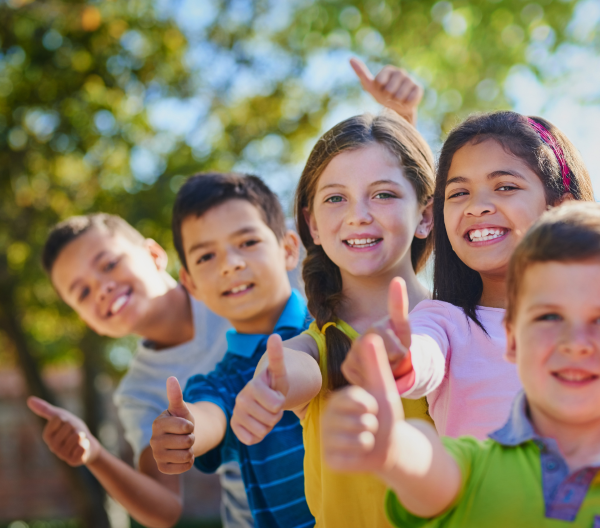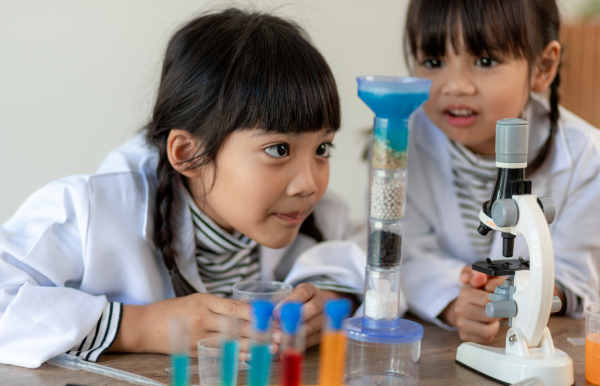Youth Development Programs That Turn Everyday Kids Into Leaders
Maya, who was only 8 years old, last summer could hardly order an ice cream without her mom’s support. Fast forward six months, and there she was, confidently explaining to customers why her homemade lemonade cost two dollars a glass at the school fundraiser. What made the difference? The youth development program that Maya joined helped her discover a whole new side of her - leadership skills that she was not aware of.
That’s the power of good quality youth development programs. They don’t only keep children engaged with afterschool or summer activities. They develop purposeful chances for young people to find out their strengths, obtain real skills, and gain the confidence necessary to handle the challenges that life may bring.
These programs motivate young people to behave as responsible citizens and to take part in the affairs of their communities. By focusing on preparing youth for life and work, these programs ensure young people are equipped with the skills and experiences they need for future success.
Key Takeaways From Youth Development Programs
- Youth development builds lifelong skills - Programs provide safe spaces, caring mentors, and real responsibilities that help kids develop confidence, resilience, and leadership.
- Hands-on experiences drive growth - From running lemonade stands to leading community projects, children gain practical skills in communication, problem-solving, teamwork, and financial literacy.
- Positive impact extends beyond childhood - Participation leads to stronger academics, reduced risky behaviors, and greater civic engagement, preparing youth for success in school, work, and life.
What Are Youth Development Programs?
Youth development programs are the holistic initiatives that cultivate the intrinsic potential of the youngsters by nurturing positive relationships, offering avenues for advancement, and aiding their changeover into mature and self-reliant adults. These programs are aimed at involving young people in the activities which have significance and promote their physical, emotional, social, and cognitive growth.

Improving physical and emotional health of the youth through sports, arts, leadership training, and community service is the hallmark of youth development programs. By establishing nurturing environments, youth development programs equip young people with vital life skills including communication, leadership, problem-solving, and decision-making.
What Youth Development Means (And Why It Matters)
Basically, youth development is the process of assisting children to identify their talents and providing them with opportunities to enhance their skills that are relevant to their daily life. It can be seen as a comparison between knowing the necessary facts for a certain exam and tackling real-life problems.
The most effective youth development initiatives revolve around the concept researchers term as positive youth development. Instead of only attempting to prevent children from engaging in harmful activities, these programs create a new trend and build more extensive strengths.
While prevention remains a significant role, these programs activate it less by emphasizing asset-building and skill development. They support children to develop what scholars termed "the Five Cs": competence, confidence, connection, character, and caring. Thus, when children become competent in these areas, they become eager to play active roles in their communities.
What youth development means can be summed up as the difference from just keeping kids busy. Workable programs offer children a platform where they can safely engage in activities, without any fear, take risks, and discover new things. They provide parents and teachers who are always there for the kids and believe in their individual potential. The most important aspect of it all is that youth development programs give them real duties that make them feel both important and capable.
Programs such as Lemonade Day are manifestations of this perspective. Children are given the opportunity to learn not by doing worksheets but by planning, budgeting for, and running their own businesses. They learn how to set goals, go through disappointments, and deal with real customers.
The Building Blocks of Great Youth Development Programs
Try to compare effective youth programs with the construction of a house. One can't just throw stuff together and still have a house that stands. You’ve got to start with the appropriate foundation and materials or everything will crumble. After evaluating the programs that keep kids’ spirits up on an ongoing basis, the researchers have pinpointed the “secret ingredients” that are the game changers.
Safe spaces go first. The children need assurance that they can make mistakes without being mocked or judged. This doesn’t mean that programs lack difficulties or that everyone is handed a trophy. It only implies that the kids feel safe both emotionally and physically and are ready to take the leaps that bring true learning.
Caring adults constitute the core of every successful program. These are definitely not the childcare personnel or the security guards. They are the mentors who recognize the potential in every youngster and know how to evoke it. They encourage effort as far as results and teach kids to get lessons from their failures.
Authentic responsibilities make kids feel important. The best programs do not just hand over kids trivial tasks, rather they give them real roles with genuine responsibilities. For instance, they may be organizing an event, teaching a subject to the younger children, or managing a business. The children will become committed to doing their best work when they realize that what they do has real implications.
Trying to fail and subsequently learn from it and try again may seem frightening, but this is exactly where the growth mindset principles are most visible. Programs that instruct kids to look at difficulties as opportunities to learn, give rise to a tough bunch of kids who do not throw in the towel even when getting hard.
Opportunities to support others and contribute to the community are ways that children can connect to their communities. Whether they are organizing a food drive or mentoring younger children, these activities impart the feelings of empathy and also show children that they are capable of bringing about positive change.
Developing skills which they can actually employ in real life outdo textbook learning every time. Communication, problem-solving, teamwork, and basic financial literacy are a set of skills that will be useful to kids no matter if they are going to college or they are starting their careers.
Types of Youth Development Programs That Actually Work
Not every youth program has the same qualities. The most effective ones have some things in common but these programs can be very different. Here’s what works and why.
Entrepreneurship and Business Programs
Young children starting a lemonade stand is just the most simplified version of one of the most inclusive learning experiences. 10-year-old Marcus was forced to make dozens of real decisions with his $25 budget for Lemonade Day. How much would be spent on materials? At what price would he sell the lemonade? How would he entice new customers to visit his stand?
At the end of the day, Marcus had learned goal-setting (he wanted to make $50 in profit), money management (tracking of expenses and revenues), and customer service (dealing with difficult customers who insisted on getting discounts). Besides, making and displaying brilliant signs that attracted people from far away, he realized that he was good at marketing.
Programs like Lemonade Day make entrepreneurship a reality for every child by providing free tools, mentorship, and step-by-step guidance. The greatest thing? These business skills are not only for future CEOs. Learning to plan, budget, and interact with people in a businesslike way will make kids flourish in any other area of life.
One reason these programs are so effective is that they bring the "hands-on" nature into play, thus making the abstract concepts visible. Kids, instead of reading the loss and profit situation, can feel the excitement of making a first sale and the disappointment if the expenses are eating up their earnings. The real emotions they experience along with the lessons make the seeds stick.
Leadership and Civic Engagement
Kids learn through student councils, youth advisory boards, and community service that their voices matter and they are able to create positive change. To illustrate, 10-year-old Sophia saw that the playground in her neighborhood was covered with trash and graffiti. She not only complained but took action by organizing a clean-up day, recruiting volunteers from her youth program, and presenting her plan to the city council.
Such leadership roles foster in children confidence and problem-solving skills that they later carry on to every other area of their lives. They learn to research a problem, engage in conversation with an adult, and work with the group to get common goals done. What they also discover is that the age factor does not have to limit their power to make a difference.
What is critical is that young people should be given real leadership chances rather than just be given token roles. Kids get a feeling of leadership when they see their ideas implemented and their endeavors having an impact on real changes, which is a trait that stays with them throughout their lives.
STEM and Creative Learning
Experiential science experiments, coding clubs, and maker spaces are the things that attract children who are the least likely to be interested in the traditional learning method of fact memorization.

Simply put, these programs allow the learners to link their skills with what is going on in the world. The participants in the coding programs do not merely learn the skills necessary to write codes; they also develop apps or games. Similarly, the students do not just study biology; they also become the designers of the environment-friendly solutions that are in their community.
Sports and Physical Activity
When everything is done in a proper way, team sports are the platform where cooperation, resilience, and also healthy competition can be learned. The main aspects of the game should be: fun, improvement, and teamwork rather than simply winning. In this way children learn to work towards common goals, encourage the people who are working alongside them and also get back on their feet after one or two defeats.

Similarly, activities like martial arts, swimming, or track that are done on an individual basis help kids to develop personal goal-setting skills. The kids are taught that they need to compete with themselves and when they succeed in doing so they should celebrate their progress.
Besides that, physical activities also become a major support for one’s mental health and confidence in a number of ways that are beyond the field of play. Kids who are consequently strong and capable in their bodies, hence, are often able to keep their confidence in academic and social situations as well.
In general, the best sports programs are those that deal with character development along with the fostering of skills. Coaches not only teach or preach respect, perseverance, and sportsmanship as the core values but they do so rigorously.
Recreation and Leisure Activities
Before going into the fact that recreation and leisure activities are the kids’ means of passing the time, it’s important to point out that they also provide a foundation for positive youth development. When kids have access to extracurricular fun-filled and engaging activities, they are not only staying active and taking good care of their health but also acquiring the necessary life skills. Ones like the YMCA offer a bucket of different programs such as afterschool clubs, summer camps, team sports, and creative arts to satisfy the tastes and preferences of every child and teen.
Kinder engaging in these actions won't be just exposure to numerous topics. They will acquire confidence, and also, create positive relationships with their peers and adults. Playing on the soccer field has the merit of teaching children how to work as a team besides the other mentioned activities such as art and camp. Thus, these experiences allow kids to become stable and mature individuals capable of leading healthy lives.
Additionally, programs in recreation and leisure have served as a positive alternative to risky behaviors, creating safe places where youth can flourish, make friends, and feel a sense of belonging in their community.
If families and community organizations were to encourage kids to get involved in afterschool activities, they would actually be facilitating the development of healthy living and lifelong growth in the children. These places do not only keep teenagers busy and energetic but also motivate them to try out new things, become strong, and find their individuality.
Fostering Healthy Development in Youth
Youth thrive in positive youth development when they are provided with resources and opportunities that encourage healthy living, education, and future career success.
Such instruments as community organizations and schools, families are the key players who create environments in which children and teens can flourish.
Through this, people open possibilities for physical activities to become part of the kids' daily routine, make sure young people get healthy foods and offer the necessary support to their mental and emotional well-being. Apart from it, they are also involved in providing education and training programs that help young people develop the skills needed in adulthood, academic achievement, and career exploration.
Policy makers, practitioners, and community leaders can really make a great impact by promoting programs and services that are positive youth development (PYD) oriented. As a community, we can empower our young people by creating supportive and healthy environments where they can enjoy fulfilling lives and reach their highest potential.
The Power of Mentorship and Support
One of the best resources in a positive youth development strategy is the mentorship. The availability of adults who not only care for the kids but also believe in their potential will spur them to take off in their careers and life in general. Such programs that connect children with mentors like the YMCA offer provide the perfect setting for guidance, encouragement, and skills training.
Mentors are not only there to give advice; they are the ones who show how good relationships work, they support young people in their difficult times, and they introduce them to new opportunities. The communities and schools can collaborate by providing the necessary training and other support for the adults working closely with young people so that they are able to assist the youth properly.

The development of supportive and close relations has made mentorship programs give youth the capacity to develop resilience, and the required life skills and also have a sense of belonging to the community. These are the relationships that can change everything, and be a source of motivation to the young who will then have confidence in themselves and work hard to succeed in all aspects of life.
What Makes Youth Development Programs Successful
You can have all the right activities and still miss the mark if you do not pay attention to the structuring and delivery of the programs. Going by criteria for youth development, it is quality that matters most and not the quantity of programs.
Only trained, skilled adults who really understand children's physical and psychological growth can make a difference. These more experienced people know how to motivate progress without pushing too much. They comprehend that different children learn in various ways and at different speeds. Most significantly, they do not question that every child is endowed with the potential to succeed.
Kids are not overwhelmed with age-appropriate challenges instead they are extended. A good program simply adjusts the expectations of the development stages while still maintaining the standards that are high. Thus, five-year-olds might focus on following directions and being kind to others whereas teenagers may engage in complex project management and leadership roles.
Children who understand the standards they have to meet, still have a variety of ways through which they can achieve those goals. This organization sets up the kids for the future when they will have to use their self-discipline and at the same time they will keep their autonomy as part of the balance.
Those who have frequent chances to look back at what they did and think about how they learned and in which way it affects their lives are the ones who really learn. It can happen through activities like journaling, group discussions, or one-on-one conversations with mentors. Such reflection is what makes the learning grow from the very activities done.
Family involvement is an extension of the learning that takes place beyond the program hours. The best programs always find ways to give parents not only access but also tools and strategies they can use to easily reinforce the lessons at home. The programs may give parents a chance to talk with others through the help of discussion guides, suggest family activities, or create opportunities for parents to observe and participate in the programs.
Community partnerships are one of the best ways to involve kids in authentic activities while at the same time opening up to them career paths they might never have thought of and introducing them to mentors. Local businesses, nonprofits, and government agencies can not only provide real-world contexts but also ignite the passion in children for learning and service. And while youth development programs are basically made up of parents, kids, and teachers, they are largely supported by departments such as the U.S. Department of Agriculture and institutional offices like the Office of Out of School Time Grants and Youth Outcomes that make sure the quality and oversight of the programs are good.
Evaluating Youth Development Programs: What to Look For
Picking the most suitable youth development program is basically the same as seeing through the glitz and focusing on the core, or the program quality and positive outcomes for young people. Efficacious programs are those that are able to substantiate their claims by showing data such as improved academic performance, increased confidence, and the development of life skills.
First, you need to determine whether the program is creating meaningful opportunities for youth to practice new skills, build positive relationships, and be involved in the decision-making process. The high-quality programs are properly structured to support growth, in which part the staff is highly trained, clear goals have been set, and the environment is always welcoming. Besides, the overall communal participation and continuous support also indicate a program’s effectiveness.
The Institute for Youth Development (IYD) often witnesses a tried-and-true rubric for measuring the quality of a given program, one that underscores safety, support, and opportunities as the major facets of skill-building. Policymakers and practitioners may find it helpful to employ these criteria in their quest to ensure that programs are not only efficiently managed but also genuinely supportive of youth development. By focusing on these factors, families and communities can feel confident that the programs they choose will help young people thrive.
How to Select the Most Suitable Program for Your Child
The first thing you need to do to find youth development programs that are appropriate for your child, is to know what they need, not what you think they should do. Here is a guide to making a decision that leads your child to success.
Begin with your child's hobbies and character. Is the girl in the family attracted to the activities that need a lot of touch or does she like to work quietly in a creative way? Does your son become active in big groups, or does he feel better in a small company? The most excellent program is the one that matches your child's natural tendencies and at the same time, allows the child to grow in new areas.
Pick programs that take effort and progress as the most important things rather than perfection. Find out how they bring up errors and setbacks. Quality programs are those that treat mistakes as learning opportunities and provide rewards not only for achieving goals but also for making progress.
Learn about adult-to-child ratios and staff training. The smaller the ratios, the more individual attention is possible. The staff, undoubtedly, should have youth development training, not just the know-how of specific activities. They should know the way children acquire knowledge and grow.
Seeing the program with your own eyes and watching how adults and kids interact is very helpful. Staff members do they get down to children's eye level when talking to them? Are they the least bit impatient when children are having difficulties? Are they doing it by asking questions that stimulate the kids' thinking rather than just giving answers? These observations tell you more than any brochure.
Find out or check if the program provides multiple means of success for the children. Not every child will be the star of the team or the most gifted in painting, however, each child should be offered chances to show their talents. Look for programs that acknowledge and support the various talents and learning styles of children.
For instance, David, one parent, actively supports his child by enrolling them in afterschool programs. He feels these programs greatly contribute to his child's growth and help establish strong relationships within the community.
Think of free programs like Lemonade Day, which do not charge families or children for participation. Youth development of high quality should not be dependent on the family's income. Many good programs are offered completely free of charge, often supported by community organizations, schools, or grants.
Below is a simple checklist for evaluating program quality:
- Program with a well-defined mission dedicated to positive youth development
- Teacher/caregiver adults who have undergone training, are loving, and know the names of children
- Safe and attractive physical environment
- Programs with educational value
- Possibilities of leadership and accountability
- Normal family-program relationships
- Stories or data serve as evidence of project success
- The program is committed to diversity in its clientele
Supporting Youth Development at Home
Learning shouldn't stop when kids leave their youth programs. Families have the biggest role in bringing home the lessons that the kids have learned at the youth programs and also creating situations for them to develop. Parents can use the following ways to integrate the benefits of the programs in their daily lives.
First, kids should be provided with opportunities to take responsibilities that are real and found in the home. You can let them organize the meal for the family and they will take care of the rest from shopping to cooking. Similarly, they can do their laundry or even work a part of the house they like. Youth programs give young people the opportunity to build their skills and self-esteem which should be done in the same way.
Family goals, challenges, and growth can be used as discussion topics. The time spent in the car or with the table at dinner is the perfect time for these discussions. Questions such as “What’s something you tried today that was challenging?” or “How did you help someone this week?” can be asked. These talks help kids to look back at their experiences and learning.
Besides, make a point of recognizing the effort and learning process not only the achievement. When the child shares his/her experiences at school, don't forget to talk about the process as well as the result. Saying, “I’m proud of how you kept trying even when it was hard” is different from “Great job getting an A.”
Moreover, kids should be motivated to make the family members familiar with the things that they have learned. In case your daughter gained knowledge about budgeting in a youth program, she can be given the task of helping set a grocery budget for the family. As children teach others, they deepen their own knowledge and also build up their confidence.
Therefore, families can participate in activities that can be used as reinforcement of the concepts taught in the program. They can carry out such activities as setting up a lemonade stand, organizing neighborhood service projects, or being co-founders of family businesses. These activities do not need to be complicated in order to be effective.
Family engagement is a critical concept that can be translated through a variety of actions. You might want to ask your child who participated in Lemonade Day to teach his siblings how to run a business, or have family meetings where everyone sets and tracks personal goals. The point is to connect with your child’s development and give them opportunities to learn and practice new skills.
Navigating Challenges and Opportunities in Youth Development
The youth's development is a great adventure filled with challenges and opportunities alike. Young people can only flourish if community organizations, schools, and families join forces to give them the necessary support and resources. It means not just removing barriers such as poverty, discrimination, and lack of sufficient opportunities but also creating programs for education, career development, and community involvement.
Youth-oriented programs like those of the YMCA are designed to cater for the needs of children and teens in a variety of ways such as the afterschool activities, summer camps, and the like. With the help of adults, we grant the youth the opportunity to partake in consequential activities, acquire new skills and thus, build relationships among other adults. This way, the youth will have already learned how to live through the hard times of their adolescence when these phases occur in their coming years.
On the condition that families, educators, and community leaders work together, a world can be made which accommodates youth and where they all have a chance to succeed. By collaborating, we can make sure that the rights and opportunities of all the young people living in different circumstances are treated equally; in this way, every child will be encouraged and helped to be the best version of themselves and to live a happy life.
The Long-Term Impact of Quality Youth Development
When a study tracks the impact of kids' participation in quality youth development programs, the outcome is quite outstanding. These young people are more likely to go through high school, youth university studies, and professional paths. And the good news is that the advantages do not stop at the point of a person's individual success.

An outstanding instance of the enduring impact of youth development programs is the 175th anniversary of the YMCA, a celebration where leaders and alumni were brought together to acknowledge positive outcomes for several decades.
Usually kids who acquire leadership skills in youth development programs are most likely to grow up and form leadership positions of their own. They get involved in their communities by volunteering, setting up their own businesses, and being active members of society. That is, investing in one child will eventually result in communities being strengthened by ripple effects.
Consider Sarah as an example who was a part of a youth development program when she was 8 years old since she was very shy and had difficulty making friends. By engaging in practical projects and being guided with love, she uncovered the leader she had been hiding. Peer tutoring programs were under her management by the time she got to high school. At present, she holds a degree from college and works for a nonprofit organization that initiates youth development programs in distressed areas.
Or think of James, who was admitted to an entrepreneurship program after he had academic problems. By going through the process of starting and managing his own lemonade stand, he learned the importance of setting goals and showing determination. Hence, he was able to smoothly sail through his school years and afterward, when he chose to be a small-time business owner, he also made a successful career out of it. Currently, he is active in local youth programs as a volunteer, and often, he takes the stage to tell his story to the young audience and motivate them.
Research over and over shows that children who are part of well structured youth development programs end up with better outcomes in multiple areas.
- They graduate more and have good academic achievements.
- They develop stronger emotional and social skills.
- The possibility of engaging in dangerous behaviors is visibly lower.
- They show more interest in civic life and initiate community activities.
- They are well equipped for school and the labor market.
The skills that kids build in youth programs - communicating, problem-solving, being resilient, understanding others - these are the things that will always be their assets through their lifetime. These are not just “nice to have” extras; they are the primary capabilities needed to thrive in our fast-paced world.
Final Thoughts on Youth Development Programs
At the end of the day, the most important step is simply to get started. If your child is 5 or 15, it is never too early or too late to put the focus on positive youth development. Strengths are waiting to be uncovered in every child accompanied by the development of skills.
Good youth development programs are the vehicles of the needed structure, relationships, and opportunities through which children grow into people full of confidence, potential, and love. They learn to set goals, overcome difficulties, and work with others in addition to contributing to their communities. These, however, are not simply add-ons but rather essential life skills that will be of great help to them in their futures.
The journey starting point is the very first step. It could be the visit to lemonadeday.org for entrepreneurship education or a call made to the youth program that you have been wondering about. Perhaps, it could be simply chatting with your child about their interests and setting up a family lemonade stand this weekend.
Take the first step that you feel is right for your family, no matter what it is. The future leaders, innovators, and community contributors that your child will be are waiting to become revealed. Quality youth development programs are simply the locations where these developments can thrive because these places have the necessary elements of safe spaces, caring relationships, and meaningful opportunities.
Every youngster deserves the chance to uncover their potential and acquire the necessary skills to live well. Youth with the right support and opportunities are capable of reaching the highest goals they set for themselves.
FAQ
What are youth development programs?
Youth development programs are youth-friendly services and initiatives aimed at aiding young people in acquiring skills, identifying their strengths, and gaining confidence. These programs revolve around the pillars of positive youth development, which means the provision of safe environs, supportive connections, and meaningful chances for growth.
What is the role of positive youth development?
Positive youth development chiefly revolves around the idea of strength-based programming rather than solely focusing on prevention efforts. It fosters the development of the "five C's" - competence, confidence, connection, character, and caring - helping the young to be the well-rounded adults that the community will benefit from in return.
What types of youth development programs are available?
The range of programs is diverse and includes entrepreneurship and business programs, leadership and civic engagement, STEM and creative learning, sports and physical activities, and recreation and leisure activities. Each presents the participants with the unique chance of developing different skills and interests.
How do I select the most suitable youth development program for my child?
Think about what your child likes, his or her character, and the stage of growth he or she is at. Seek for programs with educated, loving adults, secure surroundings, chances for skill-building, and positive social interactions. Getting direct contact with program officials and quizzing the staff about their educational background and the intended goals can also facilitate.
What benefits do children get from youth development programs in the long run?
As indicated in multiple researches, participation in well-structured youth programs is the contributing factor to the academic achievements of the children in the coming years. Besides that, social and emotional skills are considerably improved, the tendency of risky behaviors is decreased and finally, the rate of civic engagement is increased. Moreover, these programs help the young people to acquire indispensable life skills, needed for the journey of adulthood.
back to blog
@LemonadeDayNational






